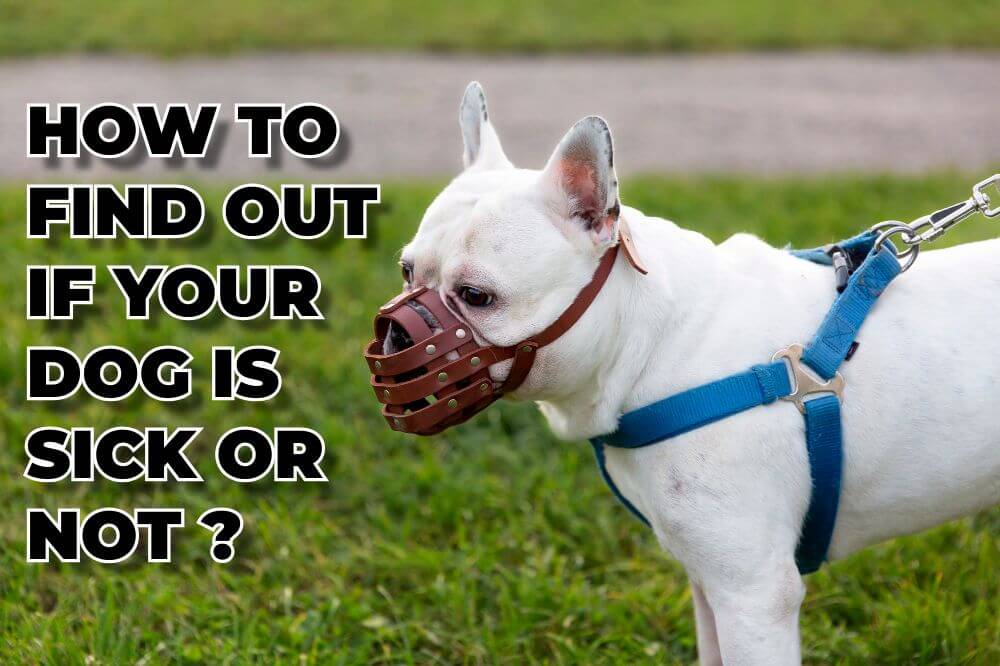Know how to tell if your dog is sick. Learn how to spot signs of illness in dogs! Essential dog monitoring health tips & when to seek veterinary care.
Table of Contents
Introduction
Hey there fellow dog lovers! We all know our furry pals are a crucial part of our lives, bringing joy and companionship like no other. As responsible dog owners, it’s essential to be vigilant about their health and well-being. Sometimes, our four-legged friends can’t express how they feel, so it’s up to us to spot the signs and determine if they might be feeling under the weather. In this article, we’ll go through ten essential indicators to help you figure out if your dog is sick and when it’s time to seek professional help.

Image related to: How to tell if your dog is sick
Changes in Dog’s Appetite and Water Intake
One of the first signs that something might be a miss with your dog’s health is a sudden change in their eating habits. If your pup is skipping meals or seems uninterested in their favorite treats, it could be a red flag. On the flip side, excessive hunger or thirst could also indicate an underlying issue. Keep an eye on their water intake and eating patterns, and if it persists for more than a day or two, consult your veterinarian.
Unexplained Weight Loss or Gain in Dogs
Has your dog been looking a bit heavier or thinner lately? Significant weight fluctuations without changes in diet or exercise might indicate an underlying health problem. Weight loss could be linked to various issues, including parasites, diabetes, or gastrointestinal problems, while weight gain might point to overeating or hormonal imbalances. Regularly monitor your dog’s weight and consult your vet if you notice sudden changes.
Changes in Dog’s Behavior
Nobody knows your dog better than you do, so trust your instincts. If your usually active and playful pup suddenly becomes lethargic, withdrawn, or unusually aggressive, it could signal an underlying health issue. Behavioral changes can be linked to pain, discomfort, or even anxiety, so be sure to pay attention to any shifts in the dog’s usual demeanor.
Digestive Issues in Dogs
An upset stomach can happen to any dog occasionally, but persistent digestive issues, such as vomiting, diarrhea, or constipation, might be a cause for concern. These symptoms can be triggered by anything from dietary indiscretions to more severe medical conditions. If the symptoms persist or are accompanied by other warning signs, it’s time to contact your vet.
How to Tell if Your Dog is Sick
Continue reading
Breathing Difficulties
A dog’s breathing should generally be smooth and effortless. If you notice your furry friend panting excessively, coughing, wheezing, or struggling to catch their breath, it could be an indication of respiratory problems or heart issues. Prompt attention from a veterinarian is crucial in such cases to prevent further complications.
Changes in Dog’s Urination
Keep an eye on your dog’s bathroom habits. Frequent urination, straining during urination, blood in the urine, or accidents indoors can be signs of urinary tract infections, kidney problems, or bladder stones. Don’t delay seeking veterinary advice if you notice any of these issues.
Skin and Coat Abnormalities
A dog’s coat can be a good indicator of their overall health. Excessive shedding, dry or flaky skin, hot spots, or the presence of lumps and bumps might warrant a visit to the vet. These skin and coat abnormalities can be caused by allergies, infections, or even more severe conditions that require professional attention.
Eye and Ear Issues in Dogs
Your dog’s eyes and ears can be sensitive areas, and any signs of redness, swelling, discharge, or excessive scratching should not be ignored. Eye problems could indicate infections or allergies, while ear issues might signal ear infections or parasites. Always consult your vet if you’re concerned about your dog’s ocular or auditory health.
Read also: How to Get My Husband on My Side – Strong Relations
Unpleasant Odors
Though dogs may not always smell like roses, any persistent foul odor, particularly from their mouth, ears, or skin, could be a sign of an underlying problem. Bad breath might point to dental issues or digestive problems, while foul odors from other parts of the body might signal infections or skin conditions.
Changes in Mobility
A sudden change in your dog’s mobility, such as limping, difficulty in standing up, or reluctance to walk or jump, could indicate pain or musculoskeletal problems. These issues can arise due to injuries, arthritis, or other medical conditions that require attention and care.
Conclusion – How to tell if your dog is sick
As responsible dog owners, it’s our duty to look out for our furry friend’s well-being. By staying attentive to their behavior, appetite, appearance, and overall demeanor, we can quickly spot any signs that our beloved companions might be feeling unwell. Remember, if you notice any of these warning signs or have any concerns about your dog’s health, don’t hesitate to consult your veterinarian. A timely visit to the doctor can make all the difference and ensure your dog stays happy and healthy for years to come. Here’s to the well-being of our loyal and loving companions!
Frequently Asked Questions
How can I tell if my dog is sick?
Look out for changes in their eating habits, behavior, weight, and bathroom habits. Keep an eye on their eyes, ears, skin, and coat for any abnormalities. If you notice any persistent issues or concerning symptoms, consult your veterinarian.
My dog seems lethargic and isn’t eating much. Should I be worried?
Yes, changes in appetite and energy levels could be signs of illness. Monitor your dog closely and if the symptoms persist for more than a day, it’s best to seek professional advice from your vet.
My dog has been coughing and sneezing. Is this a cause for concern?
Yes, coughing and sneezing could indicate respiratory issues or infections. Watch for any other symptoms and consult your vet to determine the cause and appropriate treatment.
How do I know if my dog’s skin problems are serious?
Keep an eye on your dog’s skin for excessive itching, redness, lumps, or bumps. If these issues persist, it could be a sign of allergies or infections. Consult your veterinarian for a proper diagnosis and treatment plan.
My dog’s breath smells bad. Should I be worried about their dental health?
Yes, bad breath could indicate dental issues such as gum disease or tooth decay. Dental problems can lead to more significant health issues, so it’s essential to have your dog’s oral health checked regularly by a veterinarian.
